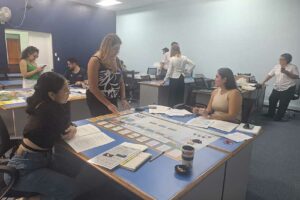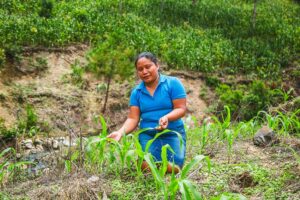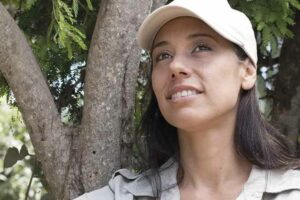CATIE Promotes Strengthening Ecosystem Restoration and Climate Adaptation Policies in Central America
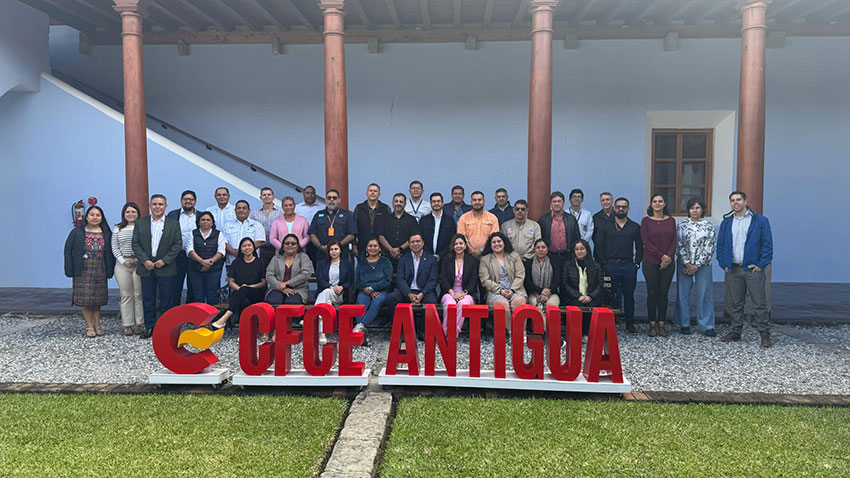
- At a tri-national workshop organized by the REFORES project, which aims to restore ecosystems and promote climate adaptation as well as social equity and inclusion in Belize, Guatemala, and Honduras, progress and contributions to policy consolidation on these themes were discussed.
In a joint effort to enhance policies for ecosystem restoration and climate adaptation, CATIE (Tropical Agricultural Research and Higher Education Center) led the workshop titled “Policies for Restoration as an Adaptation Measure: A Space for Discussion and Exchange on Challenges in the Political Framework Facilitating Restoration and Risk Management as Adaptation Measures.”
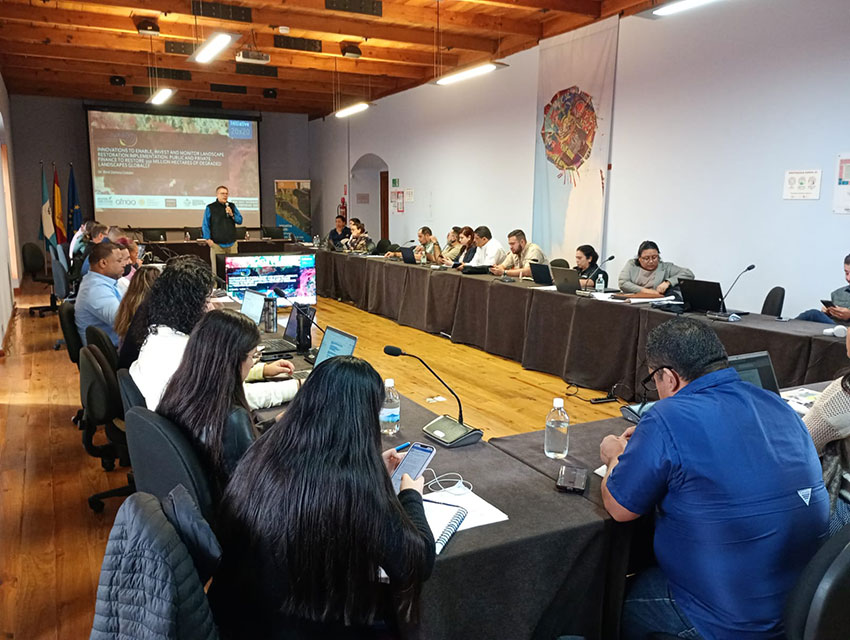
This event, held from October 23 to 24 as part of the REFORES project (Forest Reforestation for Climate Resilience in the Caribbean), brought together authorities from Belize, Guatemala, and Honduras to analyze advances and challenges in policies that integrate restoration and climate adaptation, also promoting equity and social inclusion.
The REFORES project, formally titled “Using Nature-Based Solutions to Increase Resilience to Extreme Climate Events in the Atlantic Region of Central America,” is funded by the Adaptation Fund, implemented by the Central American Bank for Economic Integration (CABEI), and executed by the World Resources Institute (WRI) and CATIE.
During the workshop, discussions focused on the project’s progress, priority field intervention areas, and political challenges to consolidating effective restoration policies. Additionally, the structure of advisory technical committees was established in each country, along with the project’s tri-national follow-up committee.
Key Meeting
The event featured representatives from CABEI (Pamela Ramos, Ángel Murillo, and José Watson) and WRI (René Zamora, Luciana Gallardo, and Omar Hernández), as well as the project coordinators for each country: Estuardo Girón (Guatemala), Karla Mejía (Honduras), and Helen Chocó (Belize).
From CATIE's main headquarters, participants included Diego Delgado from the Forests and Biodiversity in Productive Landscapes Unit and the Climate Action Unit, Claudia Bouroncle, Luis Daniel Rojas, and Róger Villalobos, who also coordinated the event.
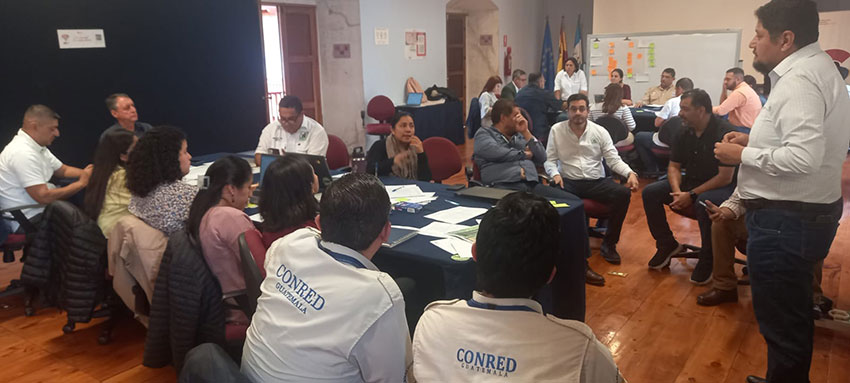
Paulette Herrera, an adaptation technician from the National Climate Change Directorate of the Secretariat of Natural Resources and Environment of Honduras, emphasized the importance of the discussions for her country, considering commitments to global conventions aimed at reducing vulnerability and increasing resilience of key human groups by using Nature-Based Solutions, which provide a synergistic contribution to climate adaptation and mitigation as well as gender equity.
She expressed her satisfaction with the pursuit of integration among various institutions and sectors linked to these issues, both nationally and regionally.
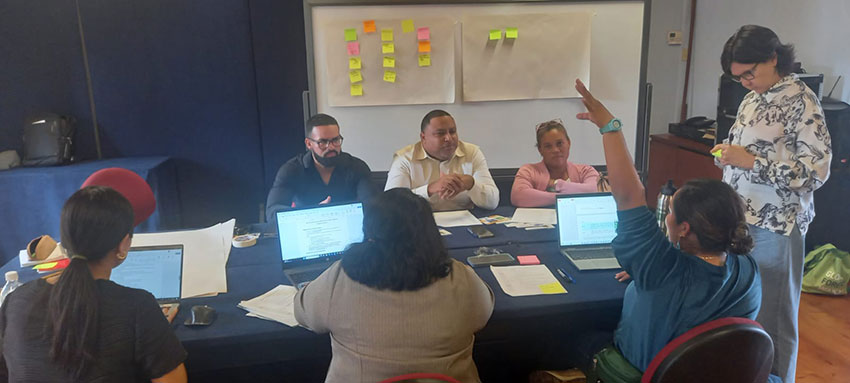
Jason Middleton, Adaptation Fund focal point at the Ministry of Economic Development of Belize, valued the establishment of a group of key stakeholders to promote climate change and risk management policies with an emphasis on equity and support for vulnerable groups.
Finally, Renata Cazali, representative of the Ministry of Environment and Natural Resources of Guatemala, thanked CABEI, CATIE, and WRI for organizing the workshop, emphasizing that such efforts strengthen regional collaboration and help identify opportunities for joint work to improve ecosystem restoration and climate adaptation.
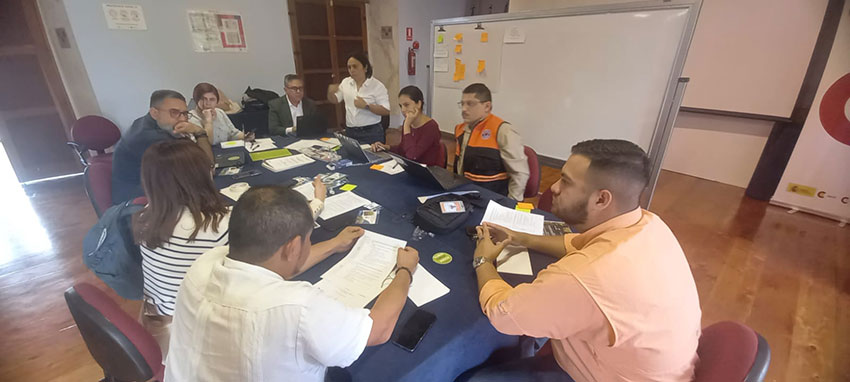
The workshop concluded with the commitment that the tri-national committee will facilitate learning and cooperation among the countries, joining efforts to build a more resilient region in the face of climate change challenges.
Written by:
Esteban Rodríguez Zamora
Communicator
Information Technology and Communication
CATIE
esteban.rodriguez@catie.ac.cr

